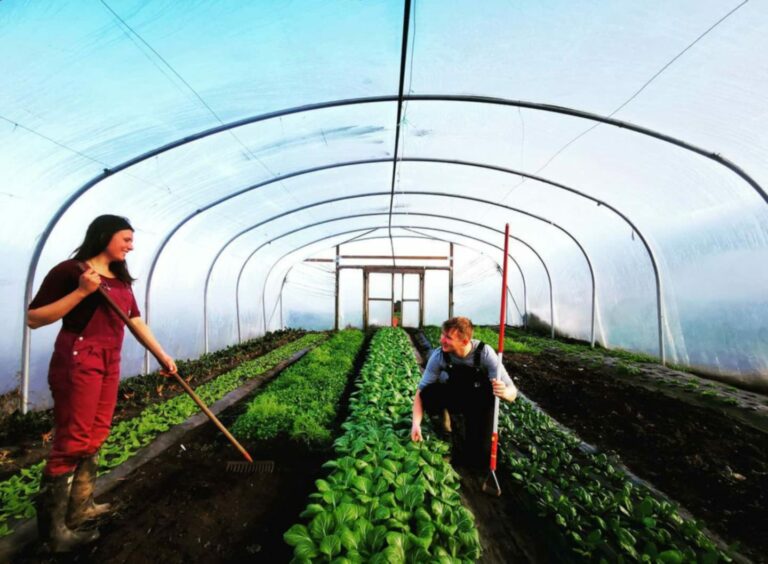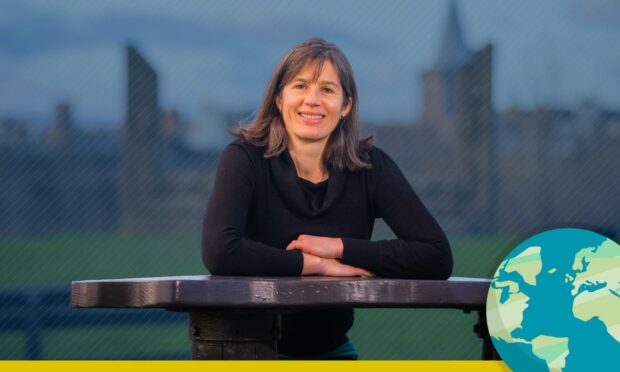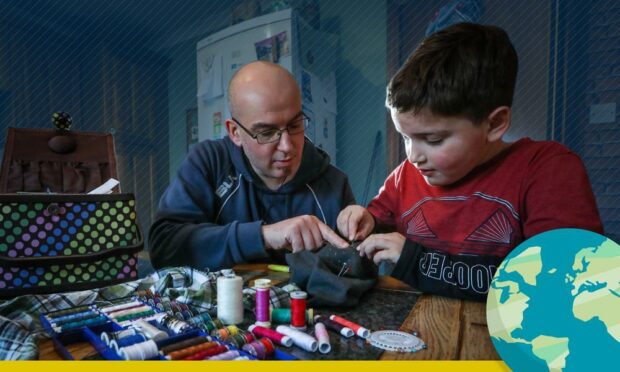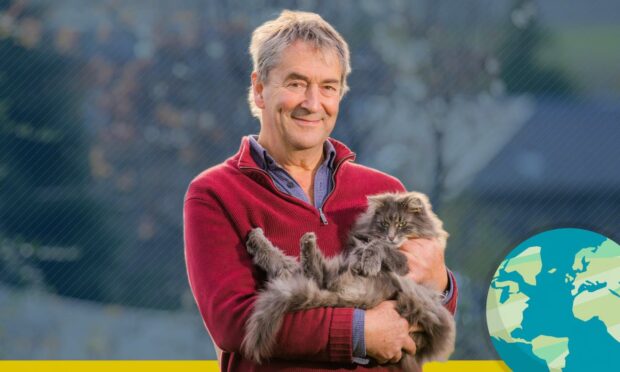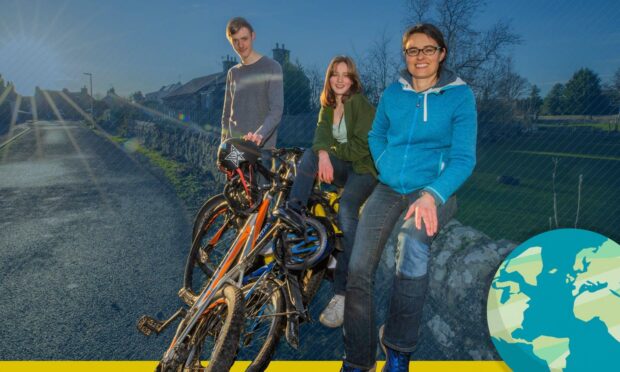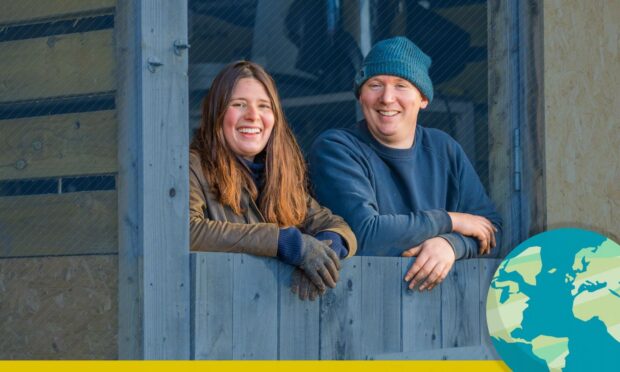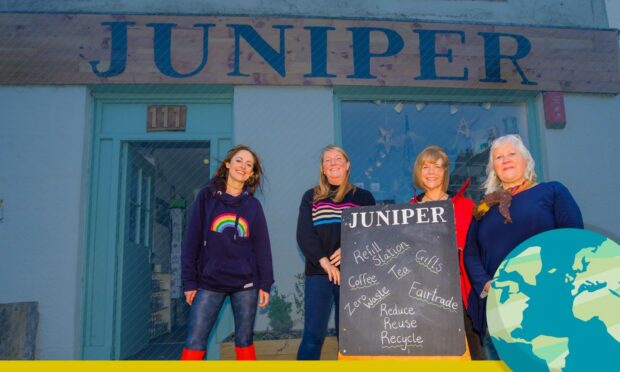Five acres wouldn’t make much of a field for many of the big farmers in Fife and Tayside.
But that’s what Bryde Marshall and Nat Dixon work for their organic food produce business Falkland Kitchen Farm.
The couple grow and deliver organic vegetables for 100 private customers a week as well as other businesses in the Kingdom and further afield in Dundee and Perth.
Last year, they won the Soil Association Organic Market Award for best farm under 10 hectares.

All from that small patch of land in the corner of the Fife estate once beloved of Mary Queen of Scots and now an example of stewardship and other forms of sustainable living.
In our series Saving the planet one step at a time we will be speaking to people who have made changes to their daily lives to help the environment.
Organic farmers don’t dig it
Over to Nat to explain more.
“We are trying to grow food for the local community in a way that works with nature, rather than against it.”
And while many organisations talk the talk, the Falkland Kitchen Farm business model is based 100% on walking the sustainable living walk, producing fresh and delicious food for their neighbours.
Check out their hard graft in the video above.
One example of their methods is the couple’s no dig philosophy.
“We have a no dig approach to farming. That means we don’t disturb the soil. We let the structures and the microbes in the soil develop.
“That’s given us really good results so far.”
Sustainable living: food without airmiles
The Falkland Kitchen Farm business began in 2014 when Bryde and Nat moved onto Falkland Estate.
They had nothing more than a polytunnel, a couple of spades and “a big vision.”
They’ve certainly come a long way since then, as you can see from the work in the video above, demonstrating how their version of sustainable living can produce not only delicious food, but also an award-winning business.
